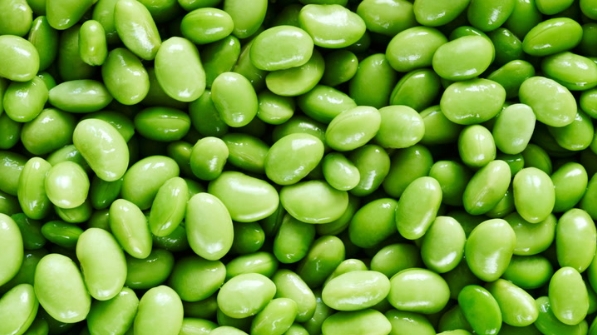What Happens to Your Body When You Eat Soy Every Day?
Soy foods like tofu, tempeh and miso are important ingredients in many traditional Asian diets. But although the U.S. is one of the major producers of soybeans in the world, with soybeans being the second-largest crop grown in the country, many U.S. adults don't consume lots of soy products.
Intake of soy foods on a typical Western diet may be relatively low, but does still include soy in various forms, from cooking oil to condiments such as soy sauce and tamari to soybeans in a pod (edamame), to dairy and protein alternatives such as soymilk, soy flour, soy protein isolate and soy protein lecithin and more.
But what exactly happens when you eat soy foods every day? Let's take a deep dive into the research to see how eating soy every day can affect the body.
You May Get High-Quality Protein
From building and repairing muscles, skin, tissue, hair and nails to supporting and building hormones and enzymes, protein is an essential part of every cell in the body. If you follow a plant-based eating pattern, you do not want to miss out on soy, mainly traditional soy foods like tofu and edamame. Both offer high-quality protein, with 18.4 grams of protein per 1-cup (155 grams) serving for shelled edamame and 21.8 grams for every 1/2 cup of raw firm tofu, per the USDA.
Generally speaking, adults need around 0.8 grams daily protein per kilogram of body weight. In other words, if you weigh 60 kilograms (132 pounds), you will almost meet of your daily protein requirement just by eating 1 cup of shelled edamame and 1/2 cup of firm tofu.
You Might Lower Your Risk of Heart Disease
Another perk of eating traditional soy foods every day is the possibility of reducing your risk of heart disease. A recent study published in Circulation discovered that individuals who ate at least one serving of tofu every week had an 18% lower risk of heart disease than those who had less than one serving per month. In fact, soy is the only plant-based protein that the Food and Drug Administration authorizes to bear the health claim that a diet low in saturated fat that includes soy protein may reduce the risk of coronary heart disease.
You Might Reduce Your Cholesterol Levels
Eating soy foods may also reduce your LDL ("bad") cholesterol levels. A 2019 review published in The Journal of Nutrition found that consuming 25 grams of soy protein per day (slightly more than half a cup of raw firm tofu) for six weeks reduced LDL cholesterol by 3% to 4% compared to those who did not eat any.
Still, the debate about consuming soy and its potential to lower cholesterol levels is ongoing. Some studies did not find that soy could significantly lower cholesterol. Nevertheless, you may still want to include these low-saturated-fat, soy-based foods in your diet. For instance, every cup of edamame contains only about 1 gram of saturated fat, and every 1/2 cup of firm tofu has 1.5 grams, making them perfect alternatives to animal-based proteins that are typically higher in saturated fat.
Original URL :
https://www.eatingwell.com/article/7969228/is-soy-bad-for-you/





